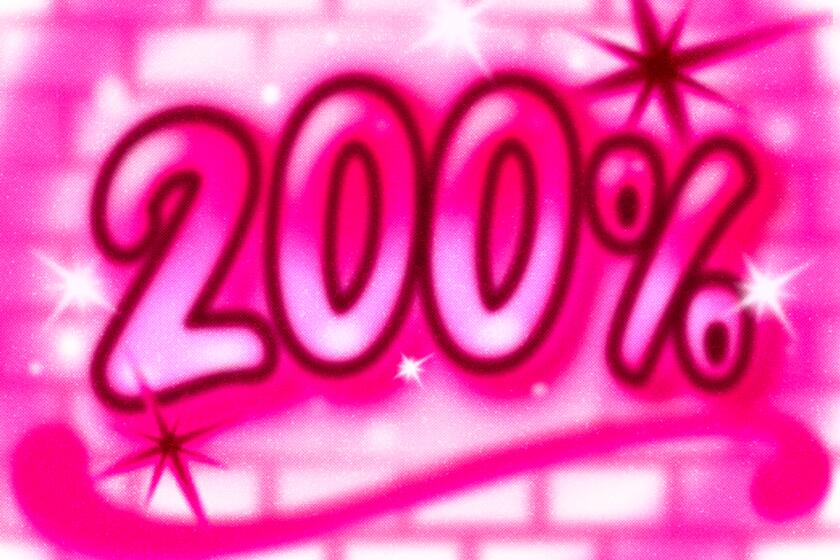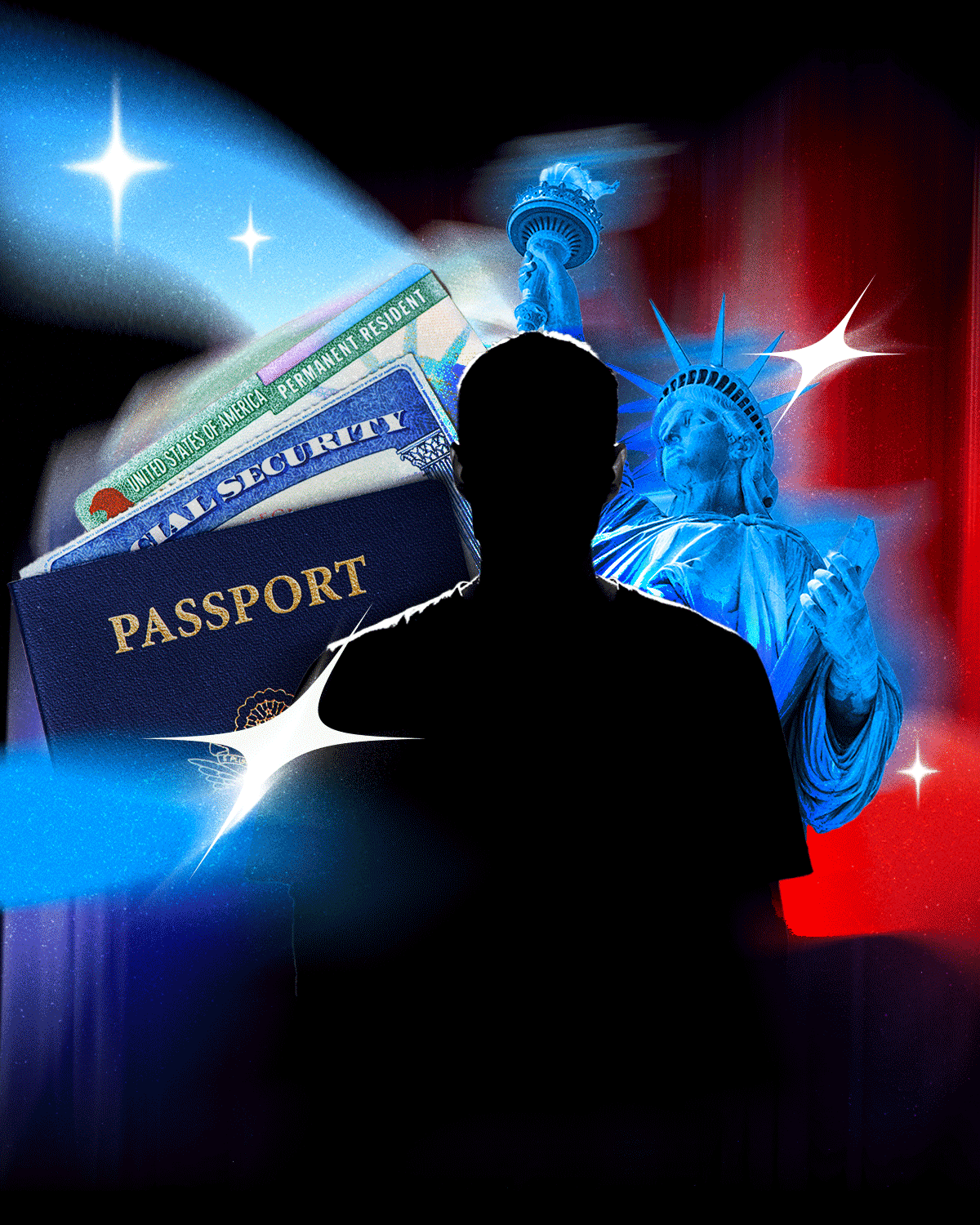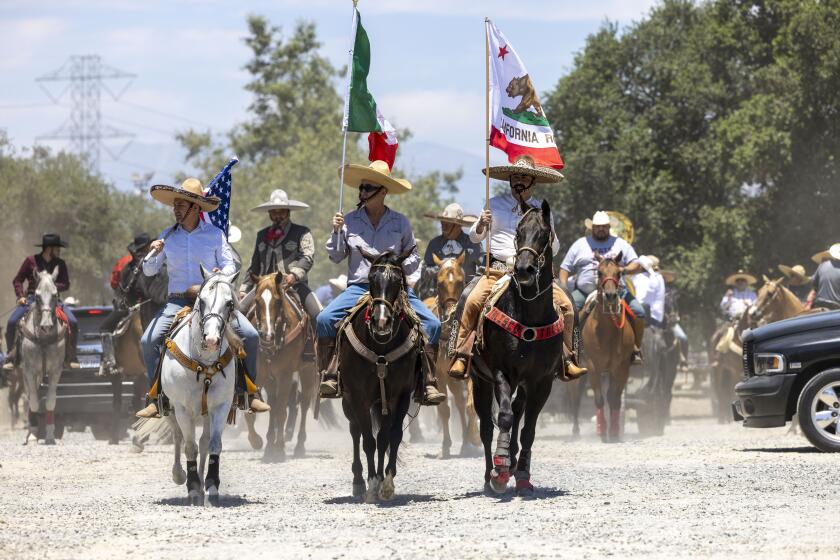
- Share via
Four towering light beams flicker on Robert Banderas as he clutches a microphone. He adjusts his red, yellow and blue sports jersey, preparing to slip into his alter ego.
By day, the 52-year-old is a welder. At night, Banderas transforms into “El Cuy,” one of the biggest boosters of ecuavoley in New York City.
Ecuavoley originated in Ecuador at the end of the 19th century, with its unique parallel to volleyball gaining the name ecuavoley in the 1930s, according to academic Alex Galeano-Terán.
The easy setup of a net and a ball made it popular among farmers and people in small towns. Today, the pastime is considered a part of daily life in Ecuador, where every town or city has its own court to bring community members together.
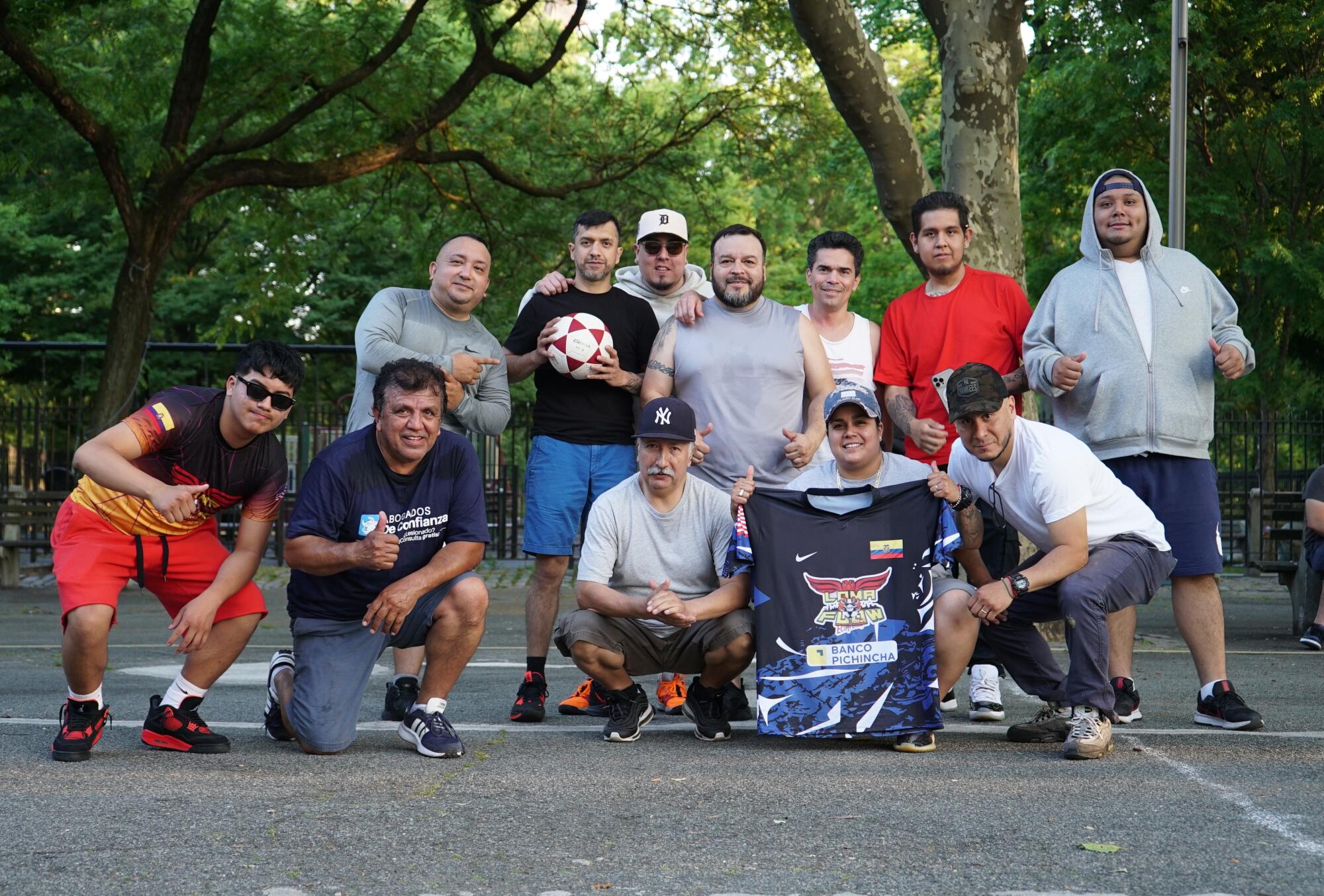
In New York City, ecuavoley is found in almost every borough. Hundreds of courts are scattered across the Bronx, Brooklyn, Queens and Manhattan.
Tonight, El Cuy is holding court at Cancha Don Erick, situated behind a nondescript house on Junction Boulevard in Corona, Queens. The master of ceremonies booms into the mic, announcing the evening’s solidarity raffle with an effortless cadence. Tonight, they’re raising money for a community member dealing with health issues.
“The lucky number is 7, 40 … 31!”
A family on the sidelines breaks out in cheers as he hands them their prize — headphones, a bottle of liquor and a jersey identical to his own. A little boy beams as he throws the shirt on, settling himself right in front of the court.
“There’s no more time. Please! We need to start now, ” he bellows once more over the speakers.
As El Cuy takes command, the perimeter begins to swarm with people. They crane their necks to get a look at the action playing out in the 9 foot by 18 foot slab.
An exploration of marketing terms like ‘200%’ and how that’s shaped our identity.
“Juega, juega,” onlookers yell in Spanish. Their eyes fixate on a No. 5 soccer ball. A player serves and hits it into the air.
“Bola, bola,” others proclaim. On each side of a high net, a team of three men volley the ball across the space. They lunge, leap and dart across the area, fighting to score a point.
Suddenly, the sound of the ball strikes on the expansive concrete, marking the end of the play.
The players exchange handshakes before getting back into their places. El Cuy crosses his arms and smiles with satisfaction. After a quick pause to take in the game, he doesn’t hesitate to keep things moving.
Throughout the night, the organizer enthusiastically greets friends, checks in with the referee and yells the occasional “bola!” all while lugging around a tripod with his phone strapped to the top.
When he’s not running the pace of games, he’s making sure his Facebook livestream is locked in for all of his followers. It’s only 8 p.m., but he can already count on Ecuadoreans from all over the world to tune in and see the activities unraveling at Cancha Don Erick.
On the livestream, El Cuy captures the smoke of grilled meat engulfing the air, countless families filling up their plates with Ecuadorean eats and melodies of bachata filling the space in between plays.
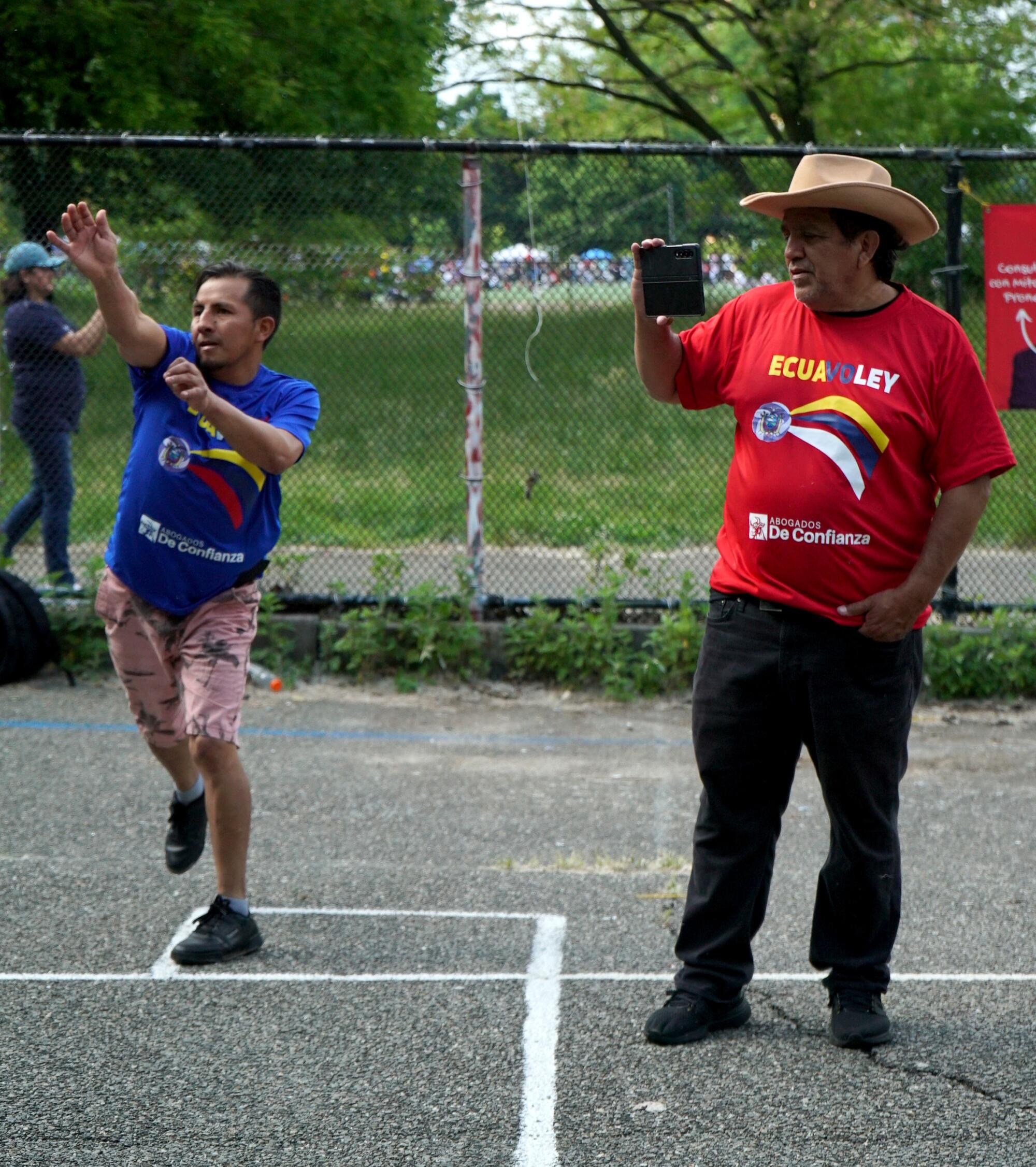
El Cuy notes that ecuavoley has become so synonymous with Ecuador that each of the 24 provinces is reflected in the city’s growing sports community.
“That’s the beauty of this sport,” shared El Cuy, “one already carries it in the blood.”
The rise of ecuavoley can be attributed to the growing Ecuadorean population in the U.S. Today, more than 184,000 people of Ecuadorean descent call New York City home.
Though Ecuadoreans have migrated to the U.S. since the 1970s, larger waves of immigration were prompted by financial crises throughout the ’90s. The beginning of 2000 saw an Ecuadorean coup d’etat. Today, Ecuador finds itself at another political inflection point — its current president, Guillermo Lasso, dissolved the country’s congress to avoid impeachment.
As Ecuadoreans continue to integrate this pastime to their lives in New York, they are transmitting a unique cultural identity and creating community in a city that often sees them as invisible.
When a waitress at 12 Corazones Restaurant in Queens was hit by a drunk driver in 2020, El Cuy immediately jumped on the phone.
Becoming your family’s translator of what life is like in El Salvador and the realities of the U.S. takes a toll.
“I spoke to the people here [and told them] that we were going to hold an event to help the girl in the hospital,” he said.
For many who have recently migrated to the United States, the ecuavoley community can become a space for support and mutual aid. Ecuavoley tournaments often double as solidarity fundraisers.
“Here we all work together to help someone who may have been in an accident,” said ecuavoley fan Eva Iza, 30, at a game in Maria Hernandez Park in Brooklyn. “Why? Because we’re a family.”
Whether a friend may be out of work or experienced a car accident, many of these tournaments can turn out thousands of dollars in a night to lend a fellow Ecuadorean help.
“Many of us who are here are immigrants, we do not have documents, and it is a very difficult road to get here. We are here for a better opportunity to give the best for our family,” reflected Iza.
Organizers like El Cuy realized the powerful correlation of ecuavoley with other cultural characteristics unique to Ecuador, and began using games as an opportunity to highlight local Ecuadorean dance troops.
At a recent game in Corona, dancers from Folklor Andino New York brought to life a performance from the Andean mountain region of Chimborazo. Their presentation, “La cacería del venado,” tells the story of men who set off to hunt deer and women who stay home to attend to the children.
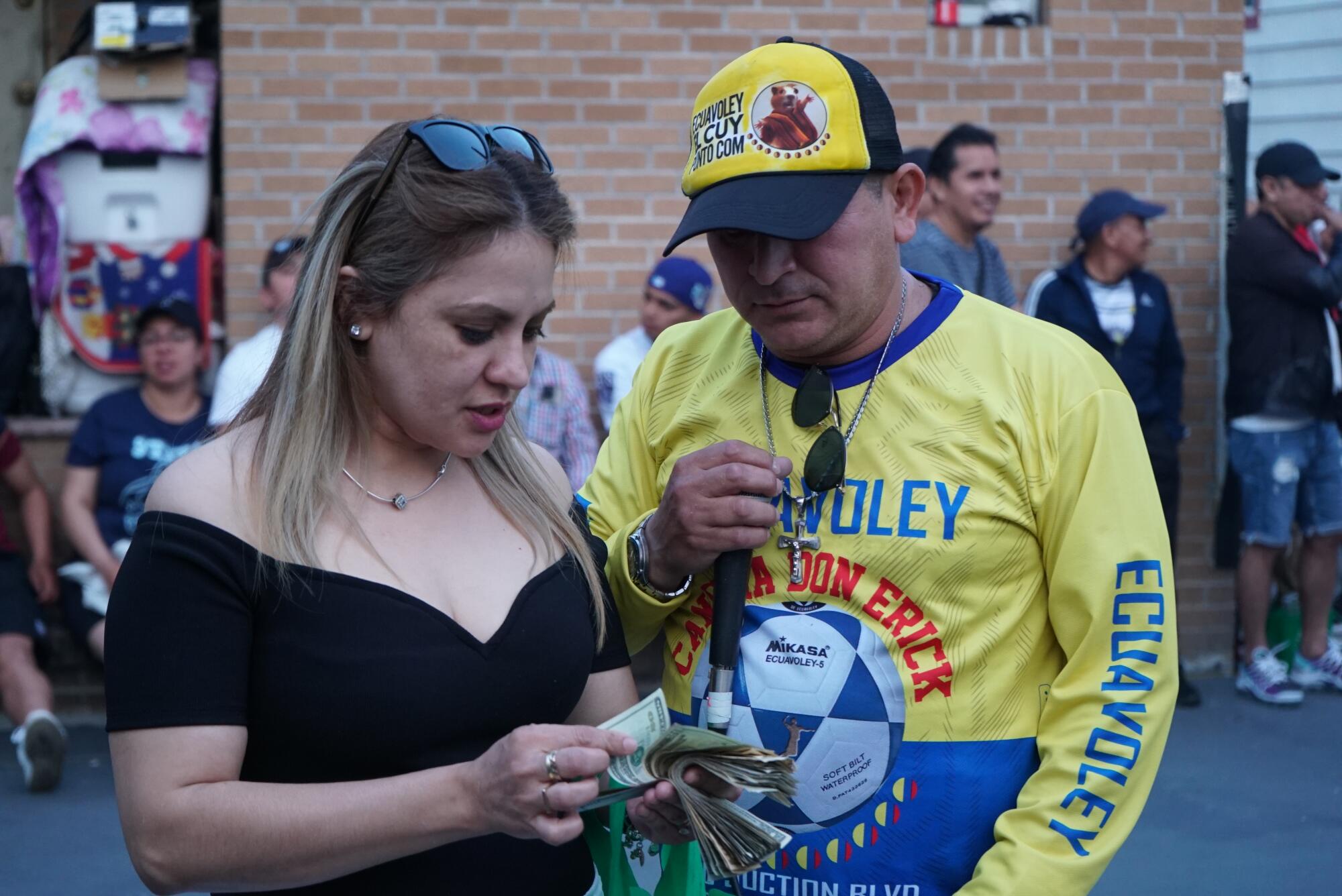
The troupe got its start in 2020 and has already become a staple at ecuavoley courts. The presence of groups like Folklor Andino hope to educate younger generations on where they come from.
For El Cuy, being able to transmit cultural pastimes that are native to the land and Ecuadorean folklore are crucial for conserving the Ecuadorean identity.
“If you can give life to an Ecuadorean group or music, you have to do it and take advantage of it.”
Alex Galeano-Terán has dedicated his life to studying and documenting the socio-cultural impact of this sport.
“A player who does not have a nickname is not a player. That’s part of the culture — apuestas [bets], apodos [nicknames], los dichos [sayings],” Galeano said over the phone.
Comic nicknames for players include Vinceño La Bestia, Súper Danny, Wero Tiwi “El Rey,” even Peso Pluma. As for the apuestas, most games have some sort of bet on players and teams. Ranging anywhere from $20 to over $1,000, the gambling adds another layer of stakes for attendees.
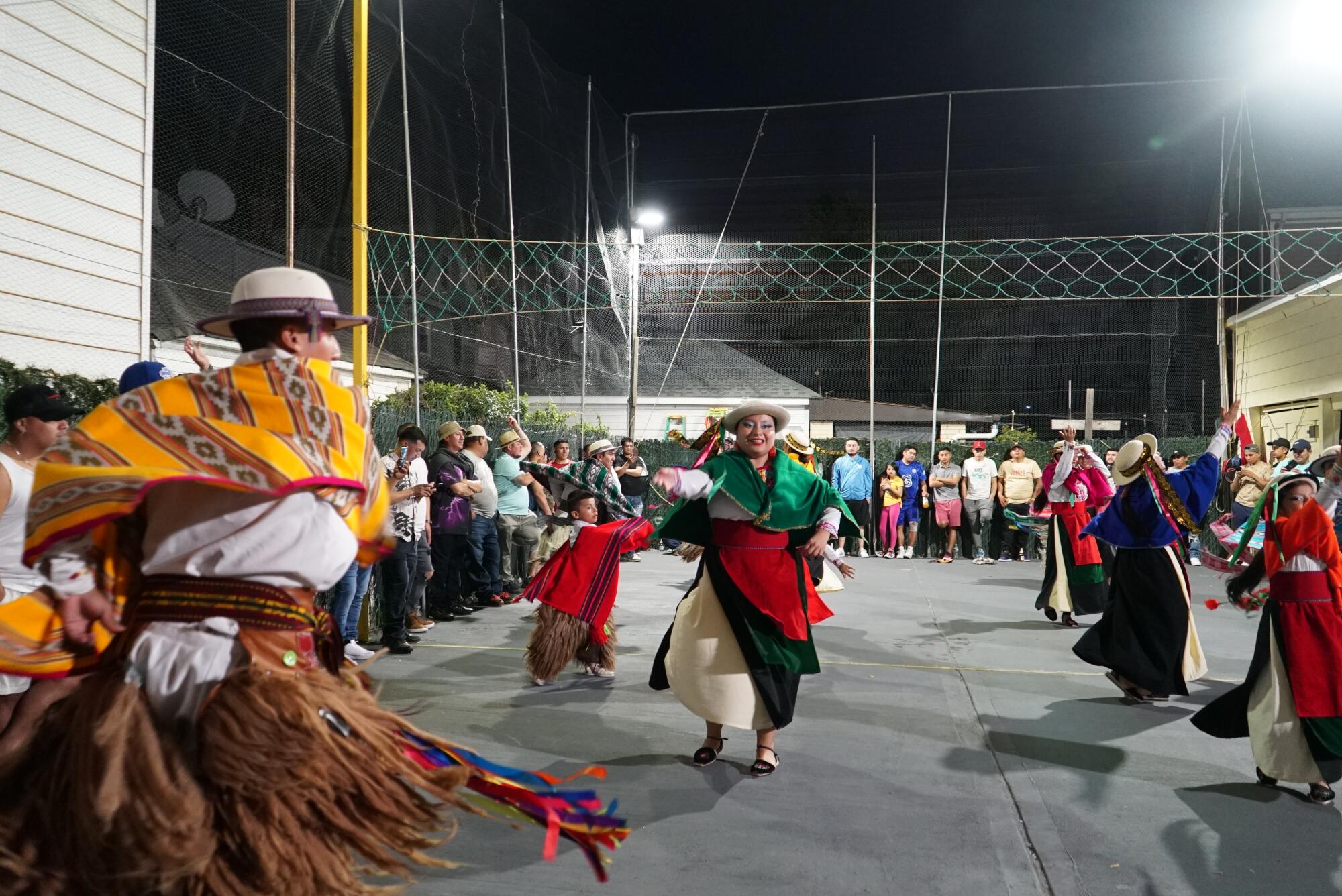
“You sit and enjoy being with your people, find a new friendship, come here to talk about work or the sport itself,” said El Cuy. “It’s the release of stress.”
Other organizers, such as Carlos Morocho, are also key figures to facilitating ecuavoley’s origins in the city. He co-founded Morocho’s Volleyball League in the early 2000s, and has welcomed the Ecuadorean community since. He said the sport has evolved and younger generations have begun to show interest.
“The roots have not been forgotten, that is the very good thing. One has to understand that even if our children, our grandchildren, are born in this country, they continue to have roots in our countries.”
Ecuavoley has also begun to involve other Latinos beyond Ecuadoreans. Dominicans, Mexicans and Colombians are also beginning to make up the fabric of ecuavoley’s presence in the city.
With the expanded involvement of other cultures, the metropolis has also become a groundbreaking hub for women in ecuavoley. Arlett Ponce, 20, is one of many women trailblazing a new generation of female players.
Started by millennial activists, the Avocado Heights Vaquer@s are helping mobilize equestrian communities to fight expansion that threatens an agrarian way of life.
Ponce got her start at age 13. Up until the pandemic, she had played only with her dad and his friends, and began to beg him to play with other people her age.
She recalls the day in the south of Guayaquil, Ecuador, where a court full of people gathered to watch her play.
“I didn’t even know, but all those people who were crowded around — all those people ended up going just to see me because of how I played.”
Her powerhouse presence on the court led her to go viral on TikTok, and earned her the nickname of “Arlett Ponce La Revelación.” Ponce became such a sensation that she has been booked to play in the United States. In New York, she feels she’s finally found a community.
“I really appreciate all the people who receive me with so much love at every court. Because feeling at home, not being at home, is quite beautiful.”
More to Read
The Latinx experience chronicled
Get the Latinx Files newsletter for stories that capture the multitudes within our communities.
You may occasionally receive promotional content from the Los Angeles Times.

